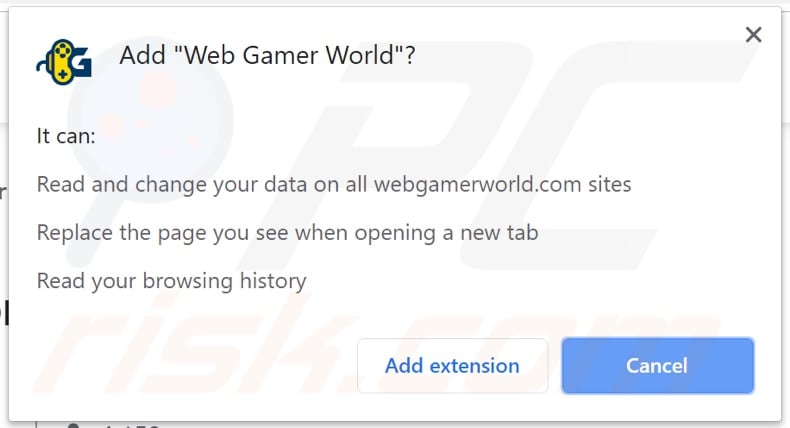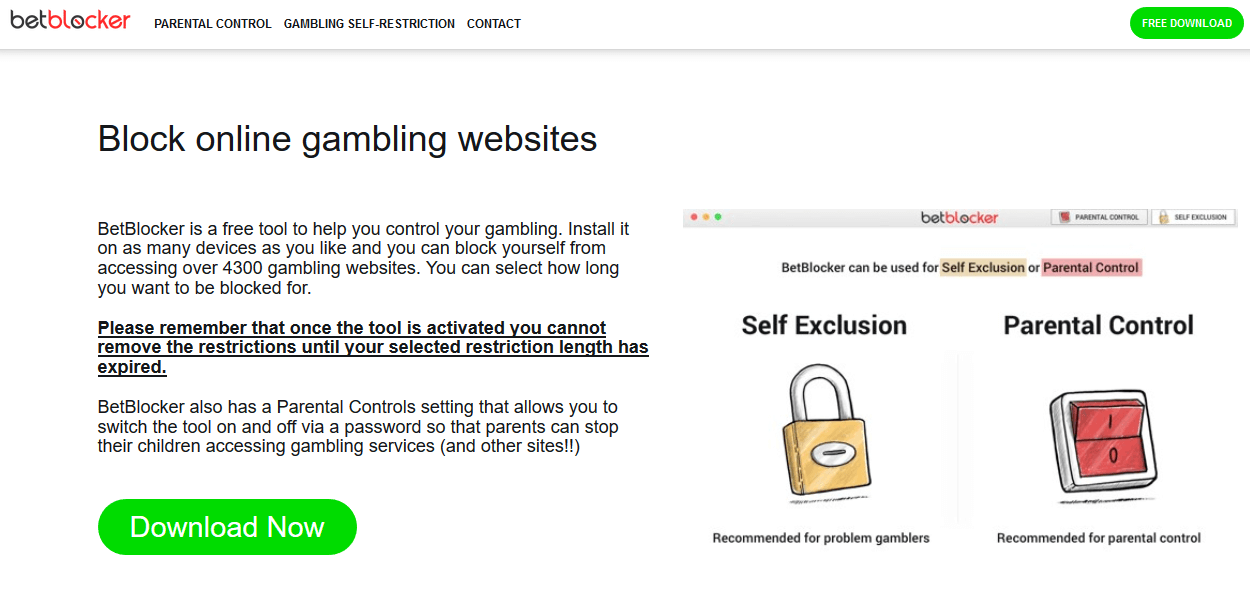Block Gambling Sites Chrome
- How to Block Websites on Chrome – using Chrome extensions #1. Google Chrome has this amazing extension called StayFocusd. While being online there is a high tendency of us wasting a lot of time on social networking sites such as Facebook, using the extension one can block such sites and become more productive at work.
- If you want to block gambling on your Chromebook, this extension will act as a system wide application that will completely stop gambling sites from being opened. Should you open a gambling.
- Block Gambling Sites Chrome Pop Ups
- Block Gambling Sites Chrome Extensions
- Block Gambling Sites Chrome Extension
- Block Gambling Sites Chrome Site
Block Gambling Sites Chrome Pop Ups
Google Chrome websites are very significant and useful, except that we find ourselves clicking on them unwillingly when we're supposed to be working and waste most of our time. If these issues sound familiar to all of us, you may want to find out how to block websites on chrome. Most of the time you sit down at your workplace with a computer, and you decide that you are going to be productive. The next moments you realize, its twelve hours later, you have wasted most of your time checking inappropriate information. You've checked your Gmail, updated several Facebook statuses, twitter gossips, browse through 200 pages of Re-edit, read every article in your Twitter feed, and looked up your favorite band on Wikipedia. Learning how to block websites on Chrome will be a productivity extension way that helps you stay focused on work by avoiding time-wasting on irrelevant sites.
Although the Chrome website lacks a feature that gives you tips on how to block websites on Google Chrome, however, you can download any one of several Chrome browser applications that will help you on how to block websites on chrome.
How to Add Trusted Sites in Google Chrome. To add trusted sites in Google Chrome, do these: 1. Open your Google Chrome browser. Click the Menu icon represented by three horizontal lines icon on the far right of the Address bar. Click on Settings. Scroll to the bottom and click the Show Advanced Settings link. Click on Change proxy.
It’s fair to assume that the majority of parents are aware that their children’s internet usage needs to be constantly monitored to ensure online safety. Thankfully, this task is easier than ever; there are a variety of fantastic parental control tools that allow parents to monitor their children’s browsing activity, and even limit access to sites that they consider to be unsuitable.
Achieving this task is, unfortunately, rather complicated; the internet is huge, and the problematic content it contains is often vast and sprawling. As a result, many parents find that they struggle for a comprehensive list of all the different types of inappropriate websites that are not fit for children to visit. In order to truly ensure that your child’s internet usage is suitable for their age group, below, we’ve put together a list of all the different types of websites that you need to ensure your child cannot access.
Explicit websites
Notable examples:
- Pornhub.com
- Kink.com
- YouJizz.com
- 8Tube.xxx
- Redtube.com
For obvious reasons, sites containing explicit and pornographic materials should never be accessible by minors. Though the majority of these sites carry age warnings, these are poorly enforced; all the user has to do is click a button to say they’re over 18, and they’re able to access the content – the age rule is, at best, tokenistic. Unfortunately, there are literally hundreds of these types of sites online, so you’ll need to ensure each and everyone is sufficiently blocked in order to ensure your child’s protection when browsing.
Dating websites
Notable examples:
- Match.com
- MeetMe.com
- OKCupid.com
- Tinder.com (primarily used as an app)
- Bumble.com
For most children, online dating websites are a subject of curiosity; although they’re not looking for a relationship, they’re still naturally intrigued by the entire process.
Unfortunately, there are some unscrupulous individuals who are well aware of this propensity, and who will actively seek out children and teenagers who have registered their own profile. The possible outcomes of these online introductions send a shudder down the spine of any parent so, to be safe, block every dating website and app to ensure your child cannot access them.
Block Gambling Sites Chrome Extensions
Cam websites

Notable examples:
- Chaturbate.com
- Bongacams.com
- MyFreeCams.com
- LiveJasmin.com
- SlutRoulette.com
The purpose of cam sites is a little different to standard explicit websites; rather than hosting content directly, the sites allow people to pay to watch a private show. Given that children cannot make such a payment, it may seem that cam sites are not particularly troubling, but this isn’t the case. The vast majority of cam sites feature “previews” or live streams, all of which are highly inappropriate viewing and can be accessed without any payment whatsoever. As a result, block all the major cam websites to ensure your children cannot access this inappropriate content.
Chat sites
Notable examples:
- Omegle.com
- TalkWithStranger.com
- ChatRoulette.com
- Chat-Avenue.com
- PalTalk.com
Chat sites may seem innocuous, but the vast majority of chat sites do not provide chatting facilities for people who already know one another. Instead, they are sites that allow users to talk with strangers – which is, obviously, rather concerning for parents. As a result, chat sites should also be on your list of websites to block, as you have no control over who your child may find themselves interacting with.
Poker and casino websites
- BetOnline.ag
- FreeSpin.com
- Bovada.lv
- SlotoCash.im
- RoyalAceCasino.com
Block Gambling Sites Chrome Extension
Gambling is highly addictive, so it is imperative to ensure that your children cannot access websites that allow poker or casino gaming. Many of these websites offer “free spins” or “free plays” in order to encourage new customers, all of which can be played without age confirmation or depositing funds – potentially leading to a slippery slope for any children who decide to give the games a try, believing that they are harmless fun.
Social networks

Notable examples:

- Whisper.sh (primarily used as an app)
- Snapchat.com (primarily used as an app)
- Twitter.com
- Facebook.com
- Instagram.com (primarily used as an app)
Block Gambling Sites Chrome Site
Whether or not children should have access to social media is a hotly debated topic, with many parents concluding that there’s no harm in such services provided they are able to access their children’s profiles at all times.
However, the evidence that social networking sites have a negative impact on children and teenagers is beginning to stack up. Studies have found that frequent social media use can greatly hamper self-esteem and self-image, as well as expose them to scams and illegal schemes. As a result, blocking these sites is definitely worth considering for all parents, and especially for parents of children who are under the age of 13.
Shopping sites
Notable examples:

- Amazon.com
- eBay.com
- eBuyer.com
- Walmart.com
- Target.com
It may sound odd to suggest blocking shopping sites; there’s nothing inherently wrong with these sites, after all. However, some parents have found that their children have been able to access their online shopping accounts; accounts which have credit card details stored and ready to use at the click of a button.
If your child is able to access the website, and then make their way into your account, they could purchase items without your permission – often without even realizing they have done so, thanks to innovations such as one-click ordering. Worse yet, parents who have experienced this often find that they are not eligible for refunds, or at the very least have to pay restocking fees in order to return the item to the sender. As a result, it’s generally safest to block these websites altogether.
Final thoughts
It’s important to note that even if you were to block access to every type of site mentioned above, it would only take a matter of months before your efforts were once again rendered incomplete. The internet is constantly growing, and new non-child-friendly sites are being launched almost on a daily basis.
As a result of this, it’s helpful if you try to frame website blocking as an ongoing task, rather than something you can tick off a to-do list and push to the back of your mind. By continually keeping an eye out for newly launched sites – and blocking those that do not meet your standards – you can be sure that your child’s internet usage will always be safe, secure, and suitable for their age group.
- Best 5 Free Cell Phone Tracker Apps by Number - November 26, 2019
- Can You Monitor a Cell Phone Without Installing Software? The Answer May Surprise You - November 5, 2019
- 11 Reasons Why Kids Should Have Cell Phones - September 21, 2019